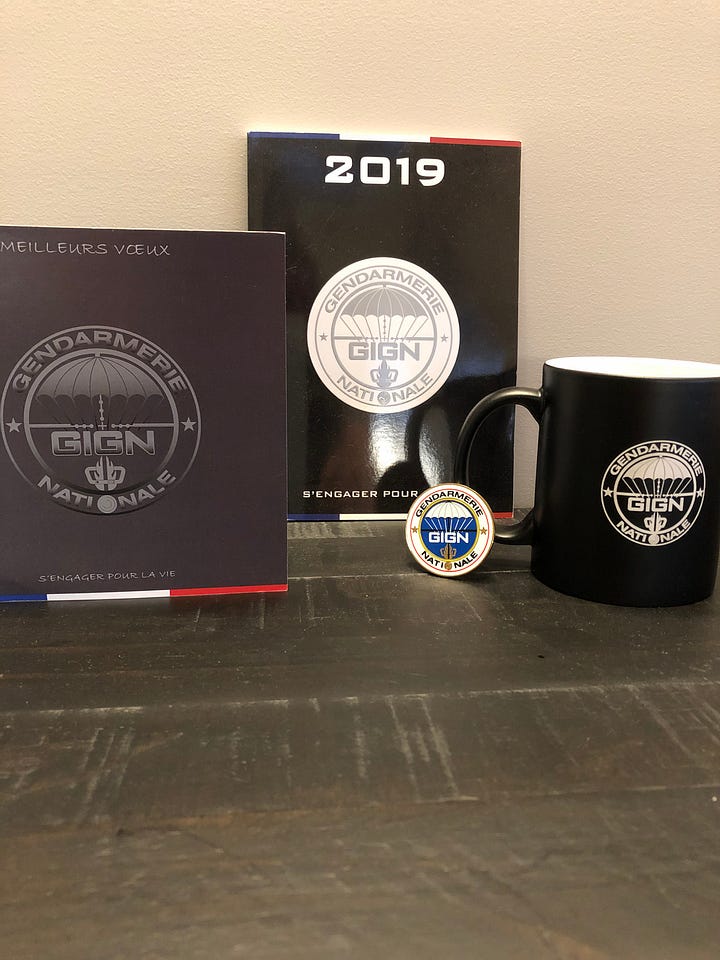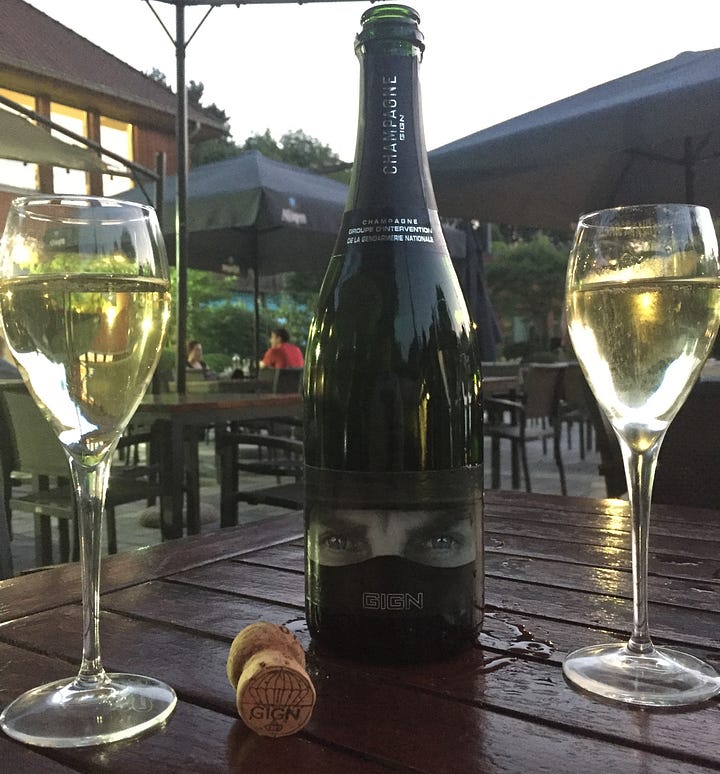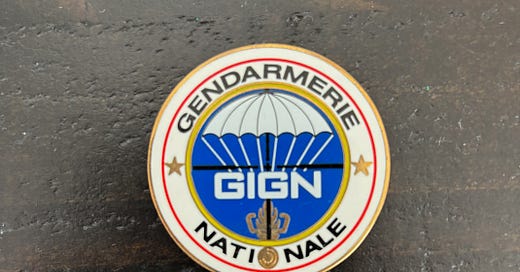The Power of Trust: How Saying Yes to Sushi Made a Massive Impact
An inside look at how informal relationships lead to real results.
The Wake-Up Call
At 2 a.m. on November 20, 2015, my wife kicked me awake. ‘Answer your damn phone!
We were asleep in Washington DC’s River Inn Hotel, and I had been lying on my right side. I hear poorly in my left ear ever since 1988 when a security guard colleague pranked me by sneaking up from behind and firing a start pistol about a millimetre from my ear.
The call came with urgent news - terrorists were attacking one of our hotels in Bamako.
During the course of that chaotic day of crisis management, I received a phone call from one of our hotels in Paris. Due to the close relationship between France and Mali, French special forces were preparing a tactical team to support the hotel.
“But be careful”, the Parisian GM said, “they only contacted us by phone. We don’t know if it’s a sneaky journalist.”
Thanks to good colleagues at another hotel group and in the international diplomatic community, we confirmed the person's identity. He was from a tactical planning unit.
My only contact with the him that day was to transfer his call to our technical services team who could supply the details and technical specifications needed to plan a response to the evolving situation. As it turned out, local Malian forces supported by American military advisors who were at the hotel by chance intervened and ended the attack quickly before the French tactical team arrived.
Little did I know that that brief contact would lead to one of the most efficient, successful, and practical partnerships I’ve ever contributed to. It also led to a friendship I cherish.
The Conversation
One afternoon in January 2016, a call came in as I was preparing to leave my office for the day.
“Do you remember me?” The caller spoke good English with a French accent. “I’m Guillaume, the one who called you when the attack in Mali happened. My team and I would like to know if hotels are open to collaborate.”
I was scheduled to visit Paris on one of the follow-up visits to support our regional office, the corporate office the hotel in Bamako reported to, and our hotels in the city. Colleagues were dealing with the aftermath of the attack in Mali and the attacks in Paris that had taken place a couple of months earlier.
Guillaume, who was with the GIGN, the National Gendarmerie Intervention Group, met me at one of our hotels while I was in Paris.
We swapped stories about how we had come to be in our respective jobs, and he was keen to learn more about how a person who dropped out of a university master’s programme in Psychology grew from hotel security guard into corporate executive in a global hotel group.
He also told me that France was concerned about the continued threat of terrorism, particularly in light of the fact that the country was due to host UEFA 2016, the European Football (soccer) championships.
“We would like to collaborate and help hotels prepare for terrorist attacks.”
I told him about the hotel security working group (HSWG) I had co-founded with the Chief Security Officers of other leading global groups. We agreed I would discuss with my colleagues in the HSWG and I assured him I was confident the group would look favourably upon a potential collaboration.
I was booked on the last train from Gare du Nord to Brussels that evening. The young officer was eager to hear more about the life of a global hotel CSO.
“Can we have dinner together?”, he asked.
We went to a nearby sushi restaurant and discussed family, friendships, and life in general. As so often happens, our casual conversations built a bond between us that would become key to the trust that is necessary in any partnership.
When it was time for me to leave he asked what time my car was picking me up.
“I don’t have a car service.”, I replied.
“I can drive you to the station.”, he offered.
Looking at the time and knowing both Parisian traffic and that I had plenty of tokens in my pocket, I politely declined and said I would take the Metro.
He smiled.
“I knew you were different from other corporate security people.”
We kept in touch, I kept my promise, and as expected the HSWG welcomed the opportunity to collaborate with the French authorities to help ensure that hotels would be as well-prepared as possible ahead of the football championships that were scheduled to begin in June.
The Result
March 31, 2016, the HSWG member groups and some French national and regional hotel companies were invited to a meeting the GIGN hosted outside Paris.
My Belgian-based deputy accompanied me to the meeting. As the security director responsible for hotels in France, he would have attended anyway. As it turned out, his French language skills were not needed in Versailles.
The leader of the unit that had invited us opened the meeting.
“We have international guests here today. The meeting will take place in English.”
I pinched myself and looked at the British delegate from InterContinental Hotels Group. He was pinching himself, too. Then we both turned to look at Hyatt’s representative, another Brit who’d come in from their regional office in Zurich. Yup. Like us, he was pinching himself in disbelief that we were attending a meeting being held in English at a French military police barracks.
It was a generous gesture that also emphasized the fact that most people in France understand English far better than us native speakers understand their language. (Sorry, Mom, I know I should have paid better attention in French class in high school.)
The unit we visited showed us a draft template they believed could be adapted for use by hotels. In the event of a hostage-taking or terrorist attack, hotels, or other venues, that had tailored the template to their properties would be able to provide critical information necessary for tactical response teams to take appropriate action to end the crisis.
The template was revised with input from the gathered groups of hotel experts. Within weeks, we all had the final version. We were also told that modified versions were also being used for shopping centres, sporting venues, and other public places where large numbers of people could gather.
Well before UEFA 2016, most hotels in France and many other venues in France and beyond had adapted the templates to their own unique properties in coordination with their local law enforcement or tactical response units.
From idea, to concept, to collaboration, and completion within months.
The Lesson
All this was accomplished without working groups, task forces, coordinator committees, or the need for budget approvals. All it took for most venues was a few hours of information gathering, template updating, and a meeting or two with a local law enforcement group that they should have a close relationship with anyway.
It started with one or two people in the unit responsible for preparing tactical unit response plans deciding that something needed to be done. They reached out to someone they knew could help in the industry they would need input from.
The European Union, the Organization for Security and Cooperation in Europe, the United Nations, agencies and organizations have often reached out to ask me to share lessons on building successful public-private partnerships. I’ve always met a willingness to learn. The GIGN story is one of the examples I show them and it’s always inspiring to watch the reactions of experts who suddenly see the light of how much can be achieved when good people align.
One of my colleagues in the diplomatic world often calls me when they know I will be presenting on public-private partnership. The advice:
“Don’t forget to mention the importance of the informal relationships!”
They’re right.
In my experience, the informal part of the relationship is a critical component.
E.g. saying yes to having sushi, which you almost never eat, just so you can sit down and talk and about family, friendship, and life. Those are the conversations that build trust, strengthen bonds, and confirm commitment is genuine.
The best partnerships don’t start with contracts. They start with conversations.


Stay safe, Always Care
P.S.: I’m grateful to my friend, Guillaume, and to the communications lead at the GIGN for permission to use their names in this article.

Hi! I’m Paul. I was born, raised, and currently live in Canada. After high school, I embarked on a gap year in Europe. It lasted four decades. I went to university in Norway and started my hotel career in the basement of a five-star hotel in Oslo. The manager who hired me told me I was too old, too educated, and had too many opinions to be a security guard. He also told me that the only other person who applied for the job didn’t want it.
Thirty years later, I left that same company. It had grown from a small regional hotel chain in Scandinavia to become a large, global, multi-brand company. I moved from Norway to Denmark to Belgium. The company awarded me their highest individual honour for leadership, and security professional peers selected me as the world’s most influential corporate security executive.
I’m a hospitality professional. I’m a security professional. If you ask, I will tell you that security was my job, and hospitality was my business.
Today, I’m an educator and a consultant passionate about hotels, hospitality, and keeping people safe during their travels.
In addition to the Always Care Community, I also write for Risk Resiliency’s Keep Travel Safe. If safe, secure hospitality, hotels, and travel are important to you, please subscribe to KTS!
Written with the clarity of hindsight, the accuracy of a faded memory, and countless creative liberties, the Always Care Community is a newsletter of how life has made me an emigrant, an immigrant, and gifted me experiences I never dreamed possible.
Thanks for reading. Your support is my motivation and I’m genuinely grateful that you’re here. Please share, subscribe, and connect with me.



